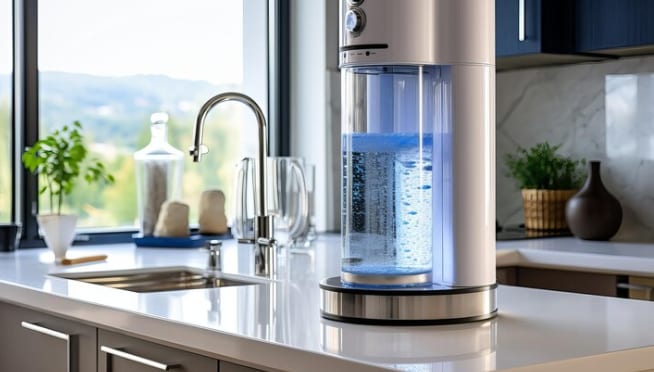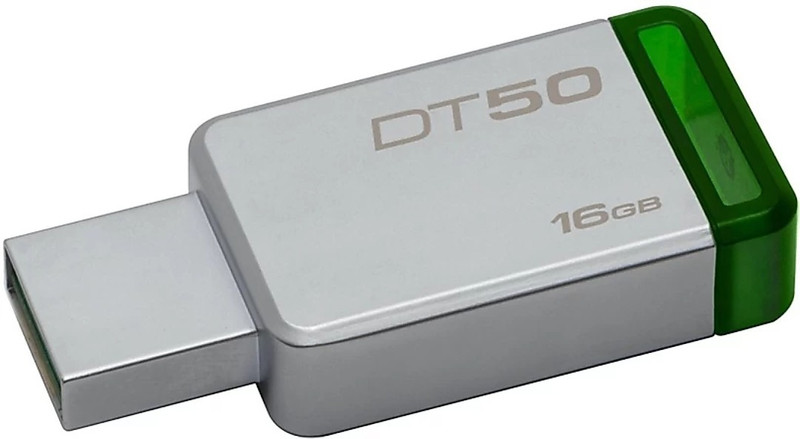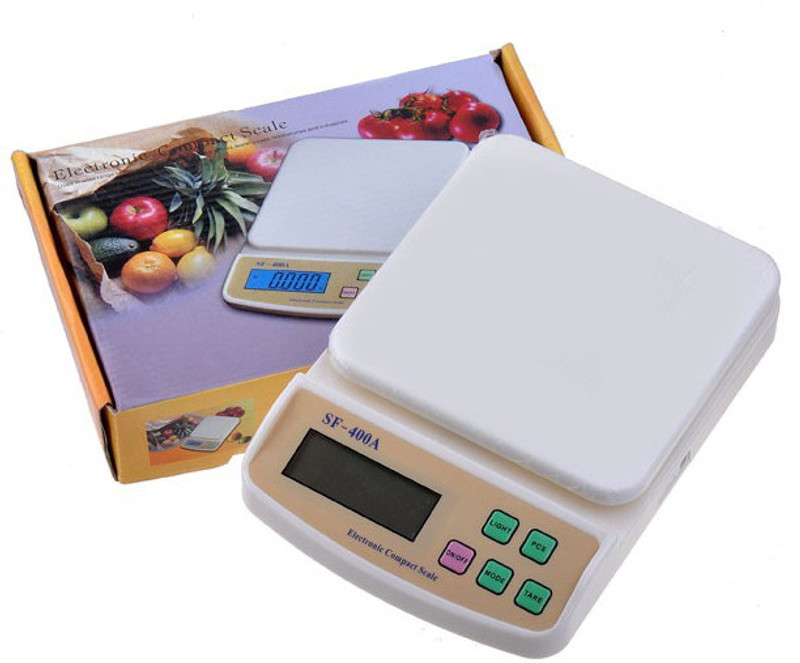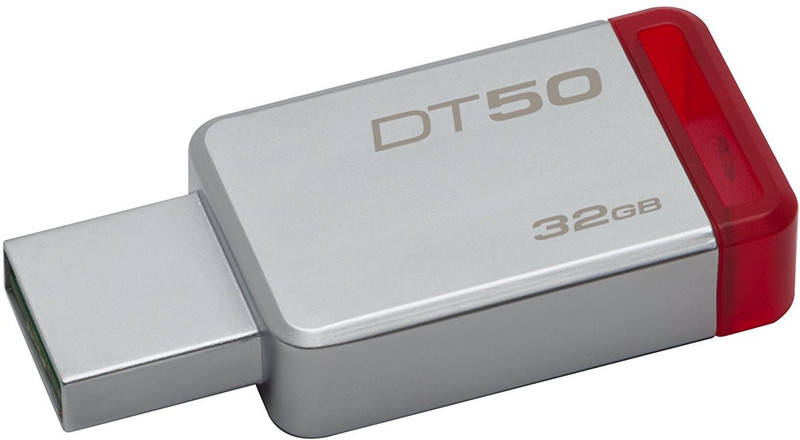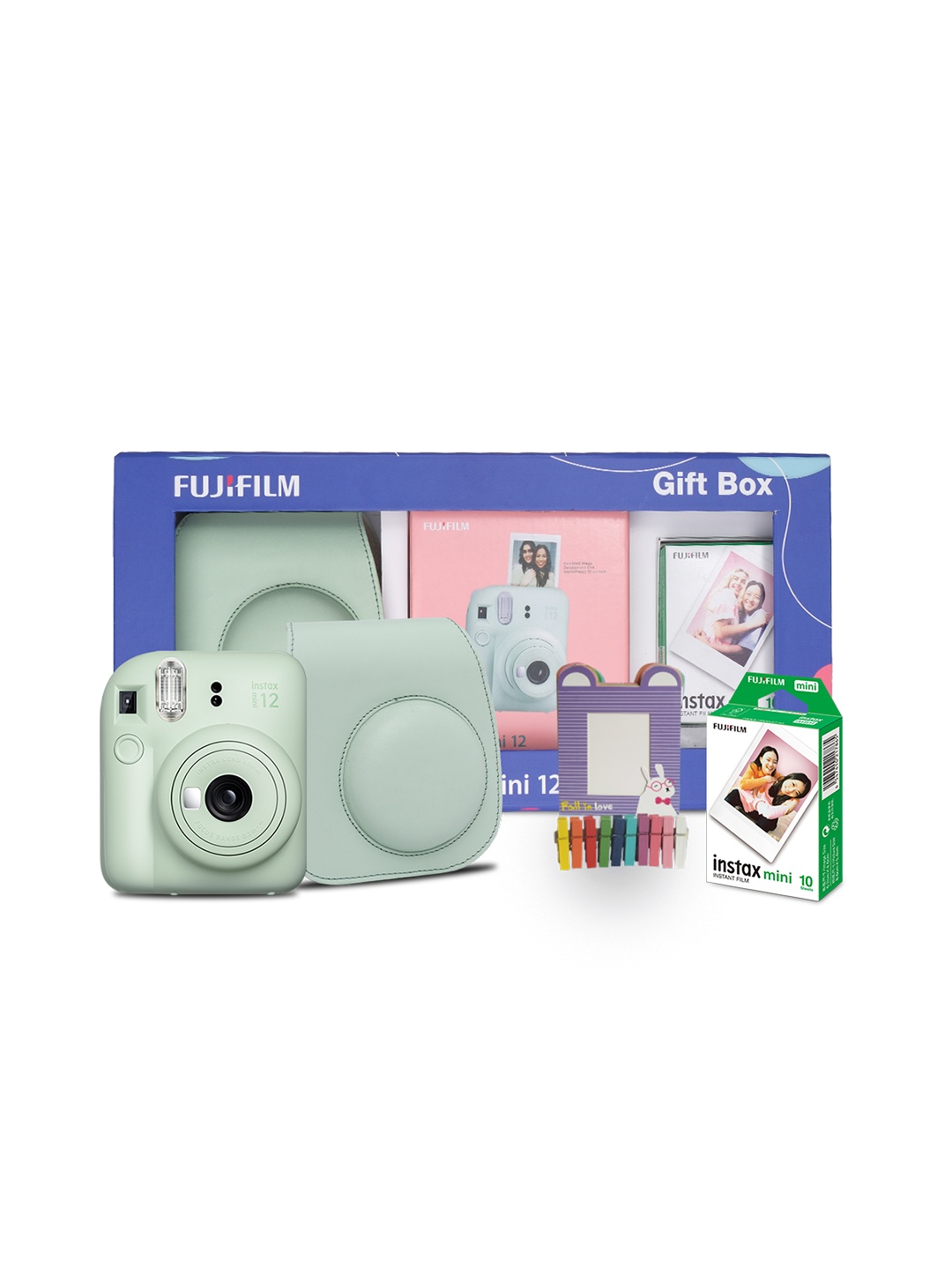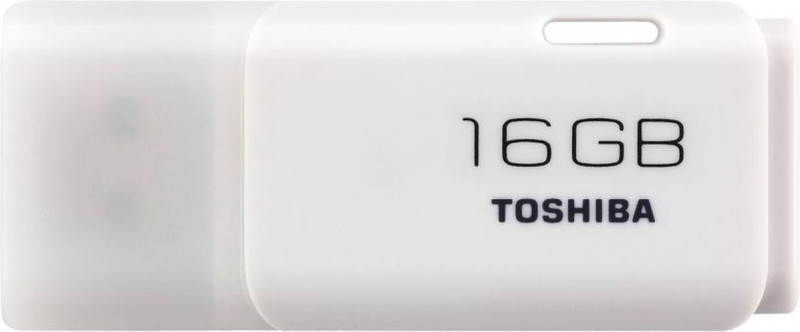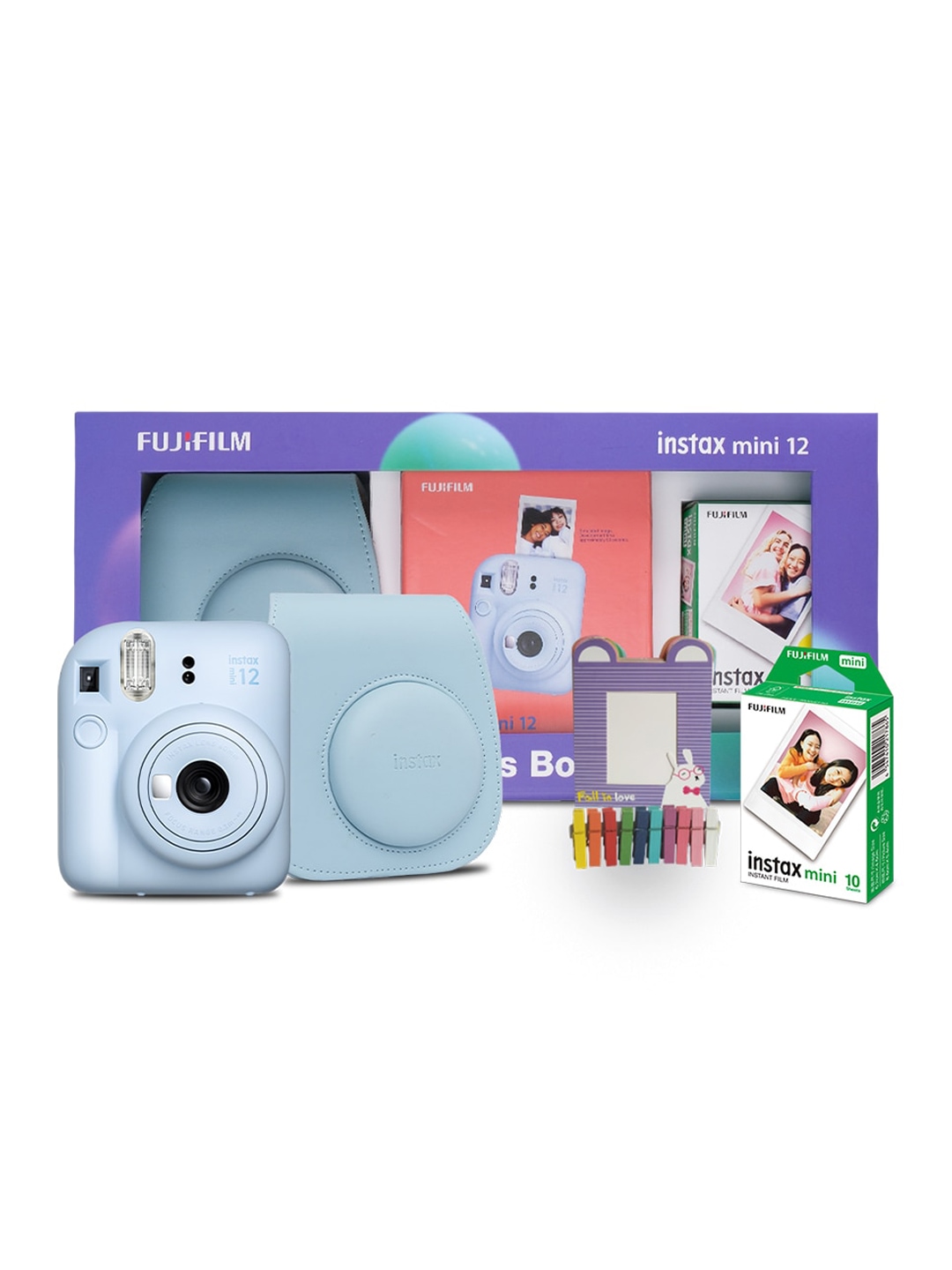From RO To Gravity Filter: Know About Different Technologies To Safeguard Your Health

Water- the most vital element for survival, yet often the most overlooked in terms of quality. We're fortunate enough to have easy access to it, but is the water we drink truly safe? With rising concerns about water contamination, water purifiers have become a household staple. But, as we dive into the world of purification, there's a question that looms: which technology is the best for ensuring clean, safe water? Reverse Osmosis (RO), Ultra Violet (UV) filtration, and gravity-based purifiers all promise pure water, but each operates differently. Let's explore these technologies in detail to demystify their working mechanisms, pros, and cons.
1. Reverse Osmosis (RO): The Power Of Pressure
When you think of a modern water purifier, the first thing that probably comes to mind is RO. This technology is popular for its ability to tackle a wide range of contaminants, including heavy metals, salts, and bacteria. RO uses a semi-permeable membrane to remove impurities by applying pressure to the water. The force pushes water molecules through tiny pores, filtering out harmful substances.
However, RO is not without its drawbacks. The process can be slow and wastes a significant amount of water in the filtration process. On top of that, it tends to remove not only the bad stuff but also essential minerals like calcium and magnesium, which contribute to the overall taste and health benefits of water.
In a nutshell, RO is your go-to if you're dealing with seriously contaminated water or living in areas with high TDS (Total Dissolved Solids). However, if you're keen on preserving those natural minerals, you might want to consider adding a remineralization filter.
2. UV Purifiers: Killing Bacteria, Not Taste
UV filtration is the unsung hero of water purification, often overlooked in favour of its flashier counterparts. Unlike RO, UV purifiers don't remove particles or chemicals from water; instead, they focus on disinfecting it. Using ultraviolet light, the purifier kills bacteria, viruses, and other harmful microorganisms without affecting the water's taste, smell, or essential minerals.
The key advantage of UV technology is its efficiency – no waste water, no complicated mechanisms, just pure, safe water. The downside? UV doesn't address issues like heavy metal contamination or excessive TDS. It's also not effective if the water is cloudy, as UV light struggles to penetrate murky water. UV is best for areas with generally safe water but high microbial risks.
Think of UV as the ‘clean and pure' solution for water that's already pretty safe but needs an extra layer of protection. It's efficient, eco-friendly, and keeps your water taste just the way it should be.
3. Gravity-Based Purifiers: Simple Yet Effective
If you're a fan of minimalism, the gravity-based purifier might be your best friend. These systems don't require electricity or complex mechanisms. Instead, they rely on the force of gravity to filter water through multiple stages, usually consisting of activated carbon and ceramic filters. The water passes through these layers, with contaminants trapped in the filtration media.
Gravity purifiers excel in their simplicity. They're energy-efficient, easy to maintain, and very affordable compared to RO and UV purifiers. However, they have their limitations. While they're excellent at removing large particles, bacteria, and chlorine, they might not be as effective in areas with high levels of dissolved salts or heavy metals.
Ideal for places with decent water quality, these purifiers provide a natural, low-maintenance solution. They are especially popular in rural areas, where electricity supply can be unreliable. If you're looking for a straightforward, no-frills approach to filtration, gravity purifiers offer great value for money.
4. TDS Levels: The Unseen Culprit
Total Dissolved Solids (TDS) are often an overlooked aspect of water quality. TDS refers to the amount of dissolved substances like salts, minerals, and metals in the water. Water with high TDS can affect taste and may even have long-term health implications. This is where technologies like RO come into play. RO is especially effective at removing high levels of TDS, making it a top choice in areas where water is highly mineralised.
On the other hand, UV and gravity purifiers don't tackle TDS directly. UV purifiers kill microorganisms, but they leave the TDS levels unaffected. Gravity-based systems remove only the larger impurities, leaving the TDS untouched. So, if you live in an area with high TDS water, RO is likely your best bet. It might strip your water of some essential minerals, but it'll get rid of those pesky salts and heavy metals that could harm your health.
5. Maintenance: A Necessary Evil
Like any appliance, water purifiers require regular maintenance to keep them running smoothly. RO systems often require filter and membrane replacements every 6 to 12 months, making them a bit more high-maintenance. Additionally, their storage tanks need to be cleaned occasionally to prevent microbial growth.
UV purifiers are a bit easier on the maintenance front. Their bulbs need to be replaced annually, and they don't have any storage tanks that require regular cleaning. However, UV purifiers are only effective as long as their bulbs are working at full capacity, so regular checks are essential.
Gravity-based purifiers, being the simplest of the lot, require the least maintenance. The filters need to be cleaned periodically, and replacement is usually required every 6 to 12 months. They don't have any electrical components, so you won't have to worry about power failures or malfunctioning parts.
If you're after a hassle-free option, gravity-based purifiers take the cake. For a balance of efficiency and maintenance, UV is a good option, while RO offers top-notch purification but at the cost of more frequent upkeep.
6. Energy Consumption: The Hidden Cost
In today's world, energy efficiency is an important consideration, especially for those of us trying to reduce our carbon footprint. RO purifiers consume the most energy, primarily because of the pump that forces water through the filtration membrane. This can increase your electricity bills over time, especially if you have a large family or if the purifier is in constant use.
UV purifiers, on the other hand, consume less energy. The UV bulb requires a low amount of electricity to operate, and since it doesn't rely on mechanical components, it's much more energy-efficient than RO systems. The downside? While energy consumption is low, the system is ineffective without a functioning UV bulb, which means regular replacements.
Gravity purifiers? They use no electricity at all, making them the most eco-friendly option. If you're looking to save on energy costs and reduce your carbon footprint, gravity purifiers and UV purifiers are the clear winners, with RO systems trailing behind in terms of efficiency.
7. Water Waste: An Environmental Concern
Water waste is a growing environmental concern, especially in regions where water scarcity is a real issue. RO purifiers, while effective at removing contaminants, tend to waste a lot of water in the process. For every litre of purified water, up to three litres of water can be wasted. This means that RO, while incredibly thorough, isn't the most sustainable choice when it comes to water conservation.
UV and gravity-based purifiers, however, don't waste any water in the purification process. They're both environmentally friendly options, especially if you're conscious about your water consumption. Gravity purifiers are particularly attractive in areas where water is scarce, as they don't rely on any electricity or waste water.
If water conservation is a priority for you, UV and gravity-based purifiers are far more sustainable choices compared to water-intensive RO systems.
8. Taste: The Finishing Touch
We've all tasted water that's either too salty, too metallic, or just plain bad. The way water tastes can significantly affect our willingness to drink it. RO purifiers, by removing salts and minerals, can sometimes leave the water tasting flat or bland. To some, this might be a small price to pay for the assurance of clean water. However, if you prefer water that has a natural taste, you might want to consider a UV or gravity-based purifier, which doesn't strip the water of essential minerals.
UV purifiers, with their bacteria-killing technology, leave the water's taste largely unaffected. Gravity-based purifiers, depending on the filter media used, can also preserve the natural taste while filtering out the larger impurities. Ultimately, the choice between taste and thorough purification comes down to your personal preferences and the quality of water in your area.
Products Related To This Article
1. Aqua Fresh Smoke Audi 18 ltr Drink Pure India 1st BIS
2. LIVPURE LIV-PEP-PRO-STAR. 7 L RO + UV + UF + Minerals Water Purifier Suitable For All
3. KENT ACE - B 8 L RO + UV + UF + TDS Water Purifier Suitable For all - Borewell, Tanker, Municipality Water
4. Aquaguard Delight NXT 6 L RO + MC Water Purifier
5. Kinsco Aqua Punch Pro With ISI Mark RO+UV+UF+TDS Adjuster 18 L RO + UV + CU Guard + Alkaline Enhancer + Mineral Water Purifier
6. Aqua Fresh EPICAQUA ADJUSTER India 1st BIS (IS 16240 :2023) CM/L8100159306 15 L RO + UV + UF + ATDS Water Purifier with Prefilter
7. NATIVE By Urban Company M2 | Needs No Service For 2 years | 10-Stage Purifier 8 L RO + UV + Minerals + Alkaline Water Purifier
8. Aqua Fresh MINERAL POT BLUE 16 L Gravity-Based Water Purifier
9. KENT Gold Optima (11016) 10 L Gravity Based + UF Water Purifier
Choosing the right water purifier is a personal decision that depends on various factors, such as water quality, health concerns, budget, and maintenance preferences. RO systems are the best for heavily contaminated water, while UV purifiers offer a chemical-free solution for microbial concerns. Gravity-based purifiers provide a simple, low-maintenance option for areas with relatively safe water.
Ultimately, the ideal choice boils down to your needs. Whether you're looking for thorough purification, energy efficiency, or ease of use, there's a water purifier that fits your lifestyle. So, pick wisely, and drink up – because clean water is the first step to a healthier life.
Disclaimer: The images used in this article are for illustration purpose only. They may not be an exact representation of the products, categories and brands listed in this article.


